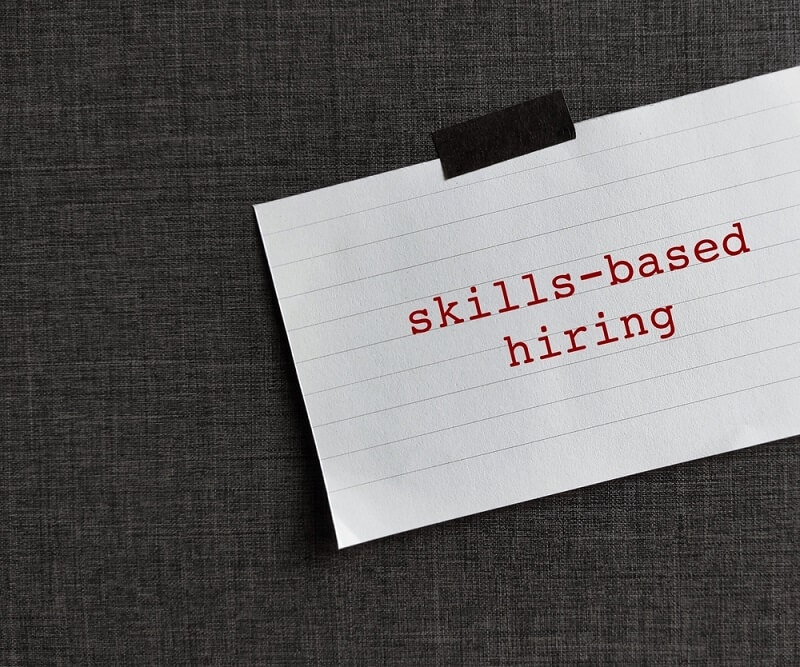
A few years ago, a fancy degree was the golden ticket to a great job. Employers would glance at your résumé, spot the university name, and that was that. But not anymore. The hiring game is changing faster than most people realize, and the focus is shifting from paper qualifications to real capabilities. This shift has a name, skills-based hiring 2025, and it’s quietly rewriting the rules of recruitment.
More and more companies are realizing that raw ability often outperforms formal education. What truly matters now is whether you can deliver results that move the needle, not just list achievements on a transcript.
Here’s the thing. Companies aren’t just chasing degrees anymore; they’re chasing people who can actually get things done. The pressure to move fast, adapt to change, and solve problems in real time means employers need doers, not just theorists. That’s where skills-based hiring 2025 steps in.
Rather than filtering candidates by education, recruiters are now asking: Can this person code efficiently? Can they manage a team? Can they sell an idea? It’s not about where you learned those abilities, it’s about whether you have them.
And you know what? That’s incredibly freeing for both sides. It opens doors for talented people who didn’t follow the traditional academic path, and it helps organizations tap into a much wider talent pool.
Top Pick: Build Your Hiring Process Flowchart for Better Recruiting
Let’s be honest. A degree tells you someone completed a curriculum, but it doesn’t always prove they’re ready for the job. Hence, the assessment of job-related skills is now practically the core of the recruitment discussions. Firms are coming up with well-organized methods that clearly demonstrate the capabilities of the applicants, and it could be through simulated projects, online competitions, or the use of actual problems as part of the skill assessments.
Some firms even perform little trial runs before finalizing their choice, allowing applicants to demonstrate their skills on the job. Others rely on professional tools for talent evaluation and assess candidates’ communication styles, speed of problem-solving, and other similar aspects. It is a custom-fit process for each situation, and that is its greatest advantage.
Let’s move on to the next aspect, competency hiring, which is another key element of the new approach. Candidates are to be assessed not only through their technical skills but also through their behavioral strengths and adaptability to workplace culture.
Imagine two applicants for a marketing role. One has a fancy MBA but struggles to translate strategy into execution. The other doesn’t have a formal degree but has built several viral campaigns from scratch. In the world of competency hiring, the second candidate probably gets the job.
Here’s what’s interesting: this change isn’t just about technology or efficiency. It’s also cultural. Employers are rethinking what “qualified” truly means. Many leaders are realizing that great talent doesn’t always wear a cap and gown.
This is why skills-based hiring 2025 is an emerging trend that is going to define the future of hiring, it will be practical, inclusive, and cost-effective. By focusing on abilities and potential, organizations will reduce the time taken to hire and the bias involved. They will not have to depend only on the traditional education channels that often eliminate the non-standard ways of learning or the underprivileged ones.
And that’s a win for everyone. The workforce becomes more diverse. Innovation grows. Even employees feel more valued because their actual contributions, not just their credentials, are recognized.

You may have a question in your mind, what is the process behind these assessment tools? The answer is that the tools used for talent assessment are quite sophisticated now. Their scope is wider than just basic multiple-choice questions. A large number of the platforms today have the integration of situational-based simulations, coding environments, and AI-mediated feedback as well.
But here’s the key: while the tools may use data, the goal remains deeply human — finding people who fit well with the team’s rhythm and the company’s goals. These systems help recruiters predict performance, but they also help candidates highlight their strengths in ways a standard interview might miss..
You know what’s really refreshing about skills-based hiring 2025? It levels the playing field. When a self-taught developer can compete with a computer science graduate, and sometimes win, it sends a powerful message about what matters most.
It also encourages lifelong learning. When you know your career progression depends on what you can do (and how well you can prove it), not just where you studied, you start investing more in continuous skill development. Certifications, boot camps, and online courses all become tools for growth, not substitutes for it.
Explore More: AI in Hiring: How Recruiters Use GPT to Evaluate Candidates
Still, let’s not pretend this shift is simple. There are real challenges. Standardizing job skills evaluation across industries isn’t easy. Not every skill can be measured by an online test. Creative, interpersonal, and leadership abilities often require observation and context, something tools can’t fully replicate.
There’s also a mindset gap. Some hiring managers still cling to degrees as a safety filter. It takes time and confidence to rely purely on competency metrics. Let’s not kid ourselves; persisting with altering entrenched habits in vast corporations is not an overnight affair.
This trend is not only affecting HR departments but also changing the criteria for success at the workplace. People start to acknowledge that proficiency is not linked to diplomas, rather, it is a matter of persistence, inquisitiveness, and flexibility.
That’s why skills-based hiring 2025 is not merely a fad. It has brought about a cultural change. It indicates that the office is maturing in terms of talent not ancestry. It is also creating opportunities for new workers who are freelancers, career changers, and lifelong learners, they are the ones who bring the new ideas and the energy to the traditional teams.
It’s time for job hunters to spotlight the pivotal skills. Look at skills that count and build a portfolio, work on real projects, cooperate with others, and keep yourself educated. Employers are paying attention to proof of action and not just lists of degrees.
To identify and match the right candidates, use talent assessment tools, set up fair job skills evaluation systems, and hire based on competencies. Not only will you get the right people for the job, but you will also have stronger and more adaptable teams.
Also check: Top Hiring Trends: How HR Hiring Is Evolving
The transition to skills-based hiring 2025 is not just another HR trend but rather a reaction to the reality of the workplace, one where agility, creativity, and resilience are more important than credentials.
Sure, degrees are still valuable, but they are not the only ones who have the power to open doors. What matters now is evidence of capability. Your skills are your currency, and if you keep them sharp, you’ll stay relevant no matter how fast the job market evolves.
So maybe the next time someone asks, “What did you study?”, the better question to ask back is: “What can you do?”
Because that’s what really defines the workforce of the future.
This content was created by AI